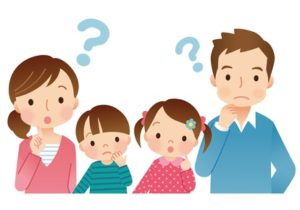
“How much can a stranger find out about my child online?” |
 |
Search for your child’s name in the following sites. What did you find? What can you find?
1. Facebook
2. Google.com
3. YouTube |
|

| I searched my teenage girl and found her information on a few social media websites: Facebook. Google+, YouTube, Prezi and Pinterest. From these pages combined, anyone can collect her personal information such as: |
1. Primary & Secondary school
2. “10 things about her”
3. Gender
4. Date of birth
5. Relationship status
6. Email address
7. Her profile picture
8. A photo of her classmates (& her) |
 |
On page 2 (of Google search), I found her:
1. Projects in primary school
2. List of achievements
3. Her winning entry for a writing competition |
Important Information
Social media sites save & display your information for public viewing long after you have forgotten about them. Users forget about what they post online, but the Internet never forgets. Many years later, they can still be searched.

What can Parents do?
1. Review your child’s information online and discuss with her the dangers of someone else looking at these information.
2. Decide with your child which information is useful or inappropriate. |
|
| “Are there any photos or information that you feel should not be online?” |
 |
Information such as home address & school open up the way for anyone to try to meet her. Phone numbers & email addresses allow someone to contact and find out a few more associated sites, and even the possibility of hacking. |
| Pictures, which may be acceptable when they are young, may prove to be embarrassing to them when they grow older. Jokes & careless comments amongst friends can give her a bad reputation and affect her school & work.
Important Information
Information on Social media can go viral, regardless of whether it is “good" or “bad”. Sometimes, inaccurate & undesirable content |
 |
| spreads even faster than those that are worth reading. Once content goes viral, it usually goes out of the user’s control. |
What can Parents do?
1. Teach children to treat social media & the Internet carefully. It is a permanent & unforgiving record. So we should decide carefully what gets recorded on it.
2. Never use the Internet for careless & casual conversation that are not suitable to be heard/seen in public.
3. Teach children to build a good online reputation by posting only good & favourable information. One’s online resume should be ready for a job Interview anytime! |
|
| “How can I clean up information?” |
| Check out the following guide to delete photos on Facebook. |
 |
Note that you may find it difficult to remove all photos. Even if you “successfully delete” it, it can still be uncovered by someone with good technical knowledge. Some deleted information also remains on Facebook’s servers. These can only be deleted when one permanently deletes his/her account (See Facebook’s statement on Personal Data). |
Important Information
All information on social media helps the companies to send advertisements and generate profits. As such, all users should expect that their information would be harder to delete.

What can Parents do?
1. The best way to clean up is not to post bad information in the first place. Teach children to be careful.
2. Social media sites add heavy human interaction and traffic on top of content. Decide on when your child is mature enough to handle it. The most popular sites among primary school children are listed below. (Note that there are age limit of 13 & above set for YouTube & Instagram)
a. YouTube
b. Instagram
c. WhatsApp |
|



